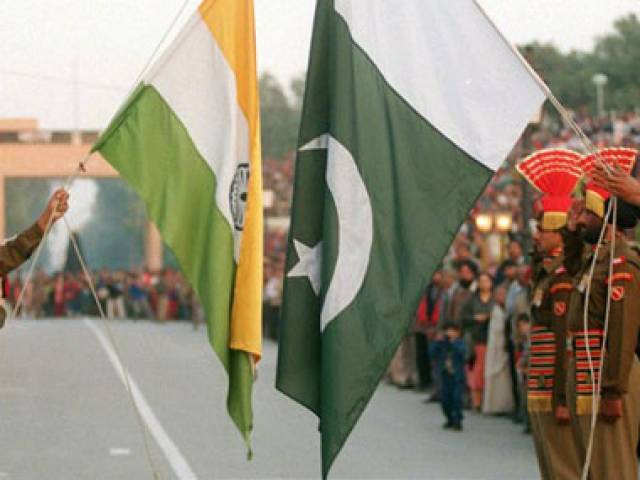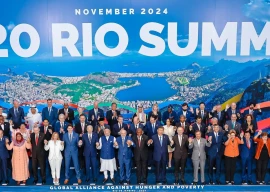
The State Department, under the government of former US president George W Bush followed by Barack Obama, 'de-hyphenated' its relations with the two neighbouring countries. Hence, allowing the US to improve its military and strategic ties with India, without Pakistan's interference.
US welcomes thaw in Pakistan, India ties: State dept
Meanwhile, the US, with the help of Pakistan's military forces continued its strategy in Afghanistan, without any discussion with India.
According to the Hindu, sources said, "A proposal to re-merge the office of the Special Representative for Afghanistan and Pakistan (SRAP) back with the Bureau of South and Central Asia (SCA) that handles India, the rest of the subcontinent and Central Asian republics is under 'active' consideration."
In October 2015, Obama had announced that he would slow the pace of withdrawing US troops from Afghanistan, prolonging the 14-year US engagement there and effectively handing off the task of pulling out to his successor.
In policy reversal, Obama slows pace of US troop withdrawal in Afghanistan
Calling it a “modest but meaningful” adjustment to winding up the American presence in Afghanistan, Obama said the United States will maintain a force of 9,800 through most of 2016 because Afghan troops are not yet as strong as they need to be.
The de-hyphenation policy of the US came into form when the SRAP was established in 2009, soon after Obama had taken over.
While officials of the ministry of external affairs refused to comment on the move, terming it an 'internal' matter of the US government, when questioned about the aftermath of bringing the two neighbours under one bureau once again, former Indian National Security Adviser Shiv Shankar Menon said, “It looks like a re-hyphenation of the India-Pakistan equation that is not in our interest."
"Our relationship has grown because it stood on its own, as it is important that bilateral relations with India won’t be overshadowed by its relations with the region,” he added.
Pakistan seeks robust dialogue with India
Further, several other Indian officials reportedly objected to the "third party" involvement of the US in Pakistan-India bilateral talks.
“We also saw that many of the officials, including Richard Holbrooke, saw regional solutions through the ‘Pakistan prism’, which is why our relations really improved only after the two desks were separated,” a former official said.
However, from what it seems, India may not object to the desks being brought back together, as strongly as it did in 2009.
Among several indications of India supporting the move, one is that India has asked to be 'kept in the loop' on developments in the US talks on Pak-Afghan relations - the country had earlier objected to indulging in talks with Taliban.
Indo-Pak ties: Top diplomats fail to spring any surprises
"We don’t believe in talking to the Taliban, for example, so how would we manage that conversation," Menon said while referring to the time when US officials wanted to discuss the situation in Afghanistan or Pakistan with India.
Further, another important indicator was the visit of SRAP Richard Olson to Delhi in December 2015, just before his visit to Islamabad. Upon being asked about the possibility of the two desks and their officials being moved together, a senior official told The Hindu, “It would be good for us,” adding that the merger “would introduce a balance between the two” when it came to advocating India’s point of view.
When contacted by The Hindu, the US embassy in Delhi and the State Department refused to comment on the possible move, calling the reports “rumours” at present.
This article originally appeared on The Hindu.
1732434981-0/BeFunky-collage-(10)1732434981-0-405x300.webp)





1732428810-0/Copy-of-Untitled-(3)1732428810-0-270x192.webp)
1732425487-0/BeFunk_§_]__-(42)1732425487-0.jpg)









COMMENTS (8)
Comments are moderated and generally will be posted if they are on-topic and not abusive.
For more information, please see our Comments FAQ